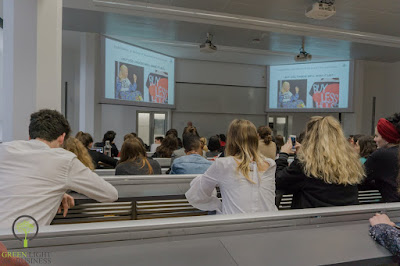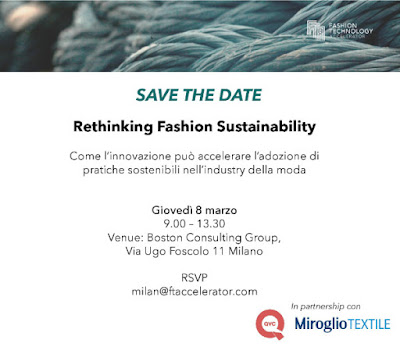here are some invitations to cool Sustainable Fashion events for you!
1. Fashion - Revolution: La moda ai tempi della sostenibilità
On April 4th in via Tortona 33 @Here
The event will be in Italian.


Here is the link to the trailer https://alessandrobrasile.format.com/fashion-victims
To book a seat please write an email to info@here-cc.com
2. Laura Strambi Open Studio
On April 3rd h14.30 and h16.40 in Foro Buonaparte 63
The event will be in Italian.

Laura Strambi will open her atelier to welcome the students, narrating how to create a sustainable collection.
To book a seat please write an email to italy@fashionrevolution.org
3. Projection of the documentary movie Fashion Victims
On April 23 h19at cinema Mexico in Via Savona
The event will be in English.
Trailer available here: https://www.alessandrobrasile.com/fashion-victims

To book a seat please write an email to italy@fashionrevolution.org























